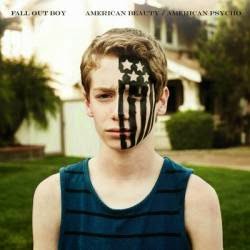"Music saves lives."
Fans are constantly offering their sentiments to bands and artists about how a song, album, or ideology of the musicians is the reason that they are still on this earth today. But is that the way it is, or, in turn, the way it actually should be?
It is nearly impossible to argue against the fact that music plays one of the most important roles in our lives; it is in our brains and our blood. Music is one of the few things that is universal, in that it shares experiences, emotions, ideas in all forms possible. It is our sadness, our anger, our joy, our loneliness, our adoration, and our inspiration. We feel it pounding, moving along with our own courses. But can it be considered our life support?
 |
Pierce the Veil show//2012
"Now I want to see you raise your hand
if music has ever saved your life"
|
There's been a constant discussion among musicians, maybe to the dismay of fans, about whether their music has the capability to save lives. Can a few chord progressions and words strung together really keep someone on this planet? Can listening to a song stop someone on the brink of suicide?
Kennedy, 18, thinks this possible, thanking a twenty one pilots' song for triggering something in her mind and telling her that change will come if we search for it. "I was lying on the bathroom floor ready to die, but that song came on, and I stopped everything. The world stopped as well. I knew in that moment that killing myself was and never had been the right decision. That song saved my life."
But others, on another hand, have decided, through similar first-hand experiences that a song or a band cannot save your life, and that sentiment carries too heavy a burden. Bryn, 19, agrees that "music is a great reason to want to live, and to feel alive," yet "to put all that power, your whole life, in the hands of someone who most likely doesn't know you is really just offensive."
When an artist releases material out into the world, the art is no longer theirs. Yes, it is still their sacred creation, but now that they have shared it, it becomes the audience's. Now, whatever the music does to and for the listener must be one hundred percent due to the artist, right? Probably not. Art, in its rawest form, is built upon interpretation.
Frank Iero (ex-My Chemical Romance, Frank Iero + The Cellabration) discussed the different meanings a song can take for each fan, furthermore, each member of the band.
Iero goes on to say, "I can never express the gravity of the statement" [on the topic of his band saving lives]. "I feel like [the fans] are not giving themselves enough credit. Maybe we've been there as a soundtrack, but the fans are the ones who've actually saved their own lives." He argues that music instills the strength in the individual to save their own life. As Bryn puts it, music is the "catalyst".
Perhaps, it all depends on who you are, where you have been, and what you have gone through when discussing whether or not music has saved your life. Bryn goes on to add, "I can never know how other people feel about [this idea]. If they really believe music saved their life, then maybe it did."
This feeling cannot be taught; it must be purely a belief. This arguments raises music as a religion, some live with it, but it will never be the reason they're alive. So if a fifteen year old girl in an Of Mice and Men shirt says that the band saved her life, maybe we should all just believe her.
//Angelia//
(Frank Iero interview: The Grammy Museum//1.26.11)








